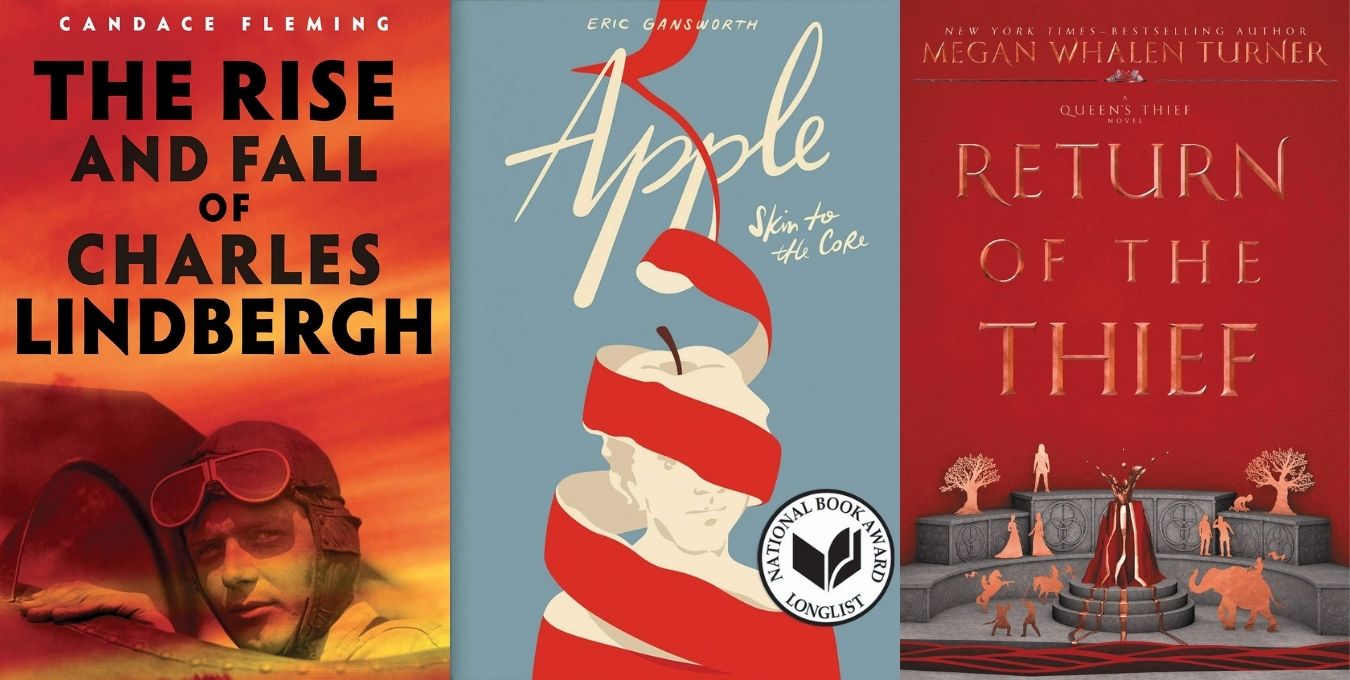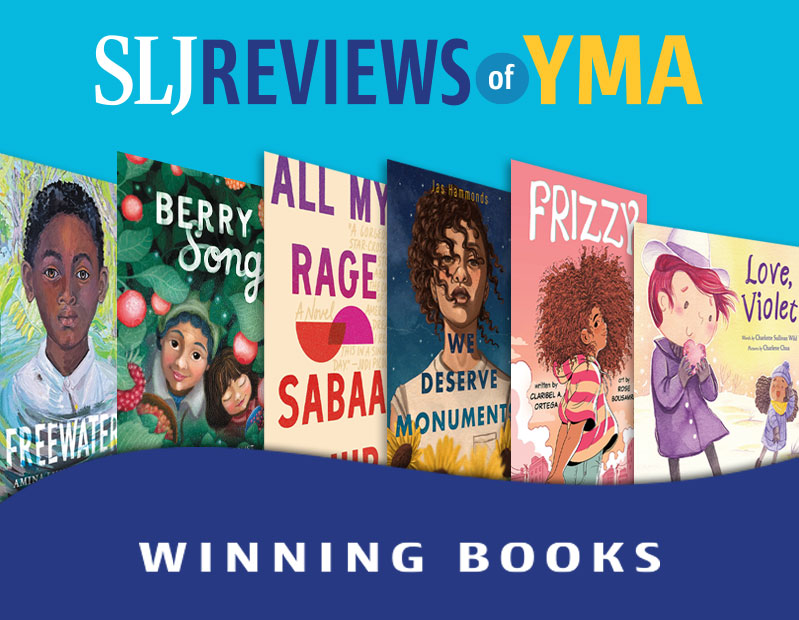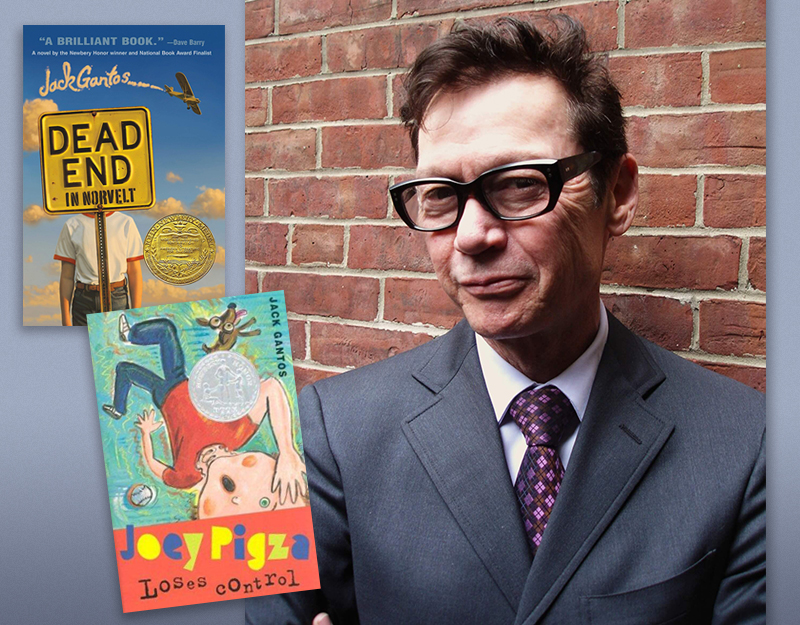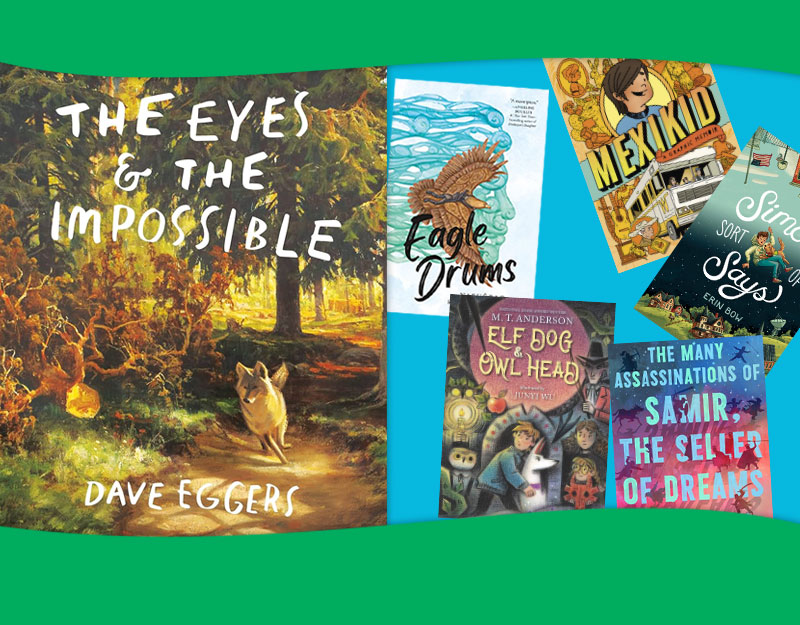Other outliers?
At the end of this week the committees will start their discussions. What haven’t we covered enough yet?
I want to highlight one other Best Books Outlier, Tim Tingle’s HOW I BECAME A GHOST: A CHOCTAW TRAILS OF TEARS STORY, which showed up on Kirkus’ Best list, and also got a strong review from Horn Book. It bears an uncanny resemblance in concept to GHOST HAWK, as the Native American protagonist is killed at some point in the book and becomes a ghost. However, in Tingle’s book the reader knows this from the outset; the narrator is similar in structure to that in FAR FAR AWAY…he tells us he’s a ghost, tells us on page one that he becomes a ghost at some point in the story; and once he becomes a ghost, has agency in the outcome of events (and will continue to, as this is the first of a trilogy). The story is well plotted, well paced, with great historical content and character development. I wouldn’t call it “distinguished” in these regards, and the prose is somewhat stilted, but it presents such a dramatically different perspective than Cooper’s work that I highly recommend you read it. Tingle is a Choctaw storyteller, and readers get a vivid sense of being told a story that has been faithfully passed through generations.
Meanwhile, as the votes pour in at the Virtual Mock Supercommittee, I see some titles cropping up repeatedly that we’ve covered here already, although some of you’ve expressed the desire to return to them. Care to make your pitches?
ADVERTISEMENT
ADVERTISEMENT
DOLL BONES, THE REAL BOY, and COUNTING BY 7S are not surprising, though I personally still have a hard time getting behind them for Newbery. I actually just finally finished COUNTING by 7s and was very much disappointed, for similar reasons as other commenters in the post…mostly found the plot manipulative and unbelievable. While the “vague person of color” didn’t bother me too much, it did when combined with what I saw as very obvious other people-of-color stereotypes. Mai is “exotic,” Year of the Dragon, with a temper/mouth, her mom runs a nail salon. Come on. Lots of inconsistencies in Willow’s character, for plot conveniences, as well.
Also showing well in the voting are some that got light coverage here and which I’d be more hopeful about (and considered for our shortlist), YEAR OF BILLY MILLER, FLORA & ULYSSES and BETTER NATE THAN EVER. All I think show much more believable character development, tightness of plotting, and vividness/believability of voice and setting than the titles above.
How about some of the titles that got early appreciation and contention, and then we seem to have dropped? I see rare votes out there for NAVIGATING EARLY, CENTER OF EVERYTHING, and HOKEY POKEY.
Back here I asked you to share which books, which we hadn’t touched on yet at all, that you’d like us to. ZEBRA FOREST was actually already covered, but maybe needs a revisit? I haven’t read WHAT WE FOUND IN THE SOFA AND HOW IT SAVED THE WORLD or THE PAPERBOY. Who has?
Filed under: Uncategorized
About Nina Lindsay
Nina Lindsay is the Children's Services Coordinator at the Oakland Public Library, CA. She chaired the 2008 Newbery Committee, and served on the 2004 and 1998 committees. You can reach her at ninalindsay@gmail.com
ADVERTISEMENT
ADVERTISEMENT
SLJ Blog Network
Name That LEGO Book Cover! (#53)
Cover Reveal and Q&A: The One and Only Googoosh with Azadeh Westergaard
Exclusive: Vol. 2 of The Weirn Books Is Coming in October | News
Fighting Public School Book Bans with the Civil Rights Act
Take Five: Middle Grade Anthologies and Short Story Collections
ADVERTISEMENT









Didn’t want to throw away a vote on it here but I do hope that Kirby Larson’s DUKE will be duly considered around the Newbery table this weekend.
I think it should be considered similarly to how we have considered CLEMENTINE here, that is, as a book that does what it sets out to do exceptionally well.
All the criteria are very well developed.
What might be holding this one back? Well the WW2 American home-front historical setting is nothing new (but like i said it is vividly drawn). Kirby doesn’t tackle any hot button issues and the characters lack diversity but since these areas are outside the parameters of the discussion, it shouldn’t be part of the conversation.
I just don’t think anyone really read this one. Or maybe I’m seeing something that isn’t there. Has anyone read this?
Also any idea when we will hear a Scott O’Dell award announcement? (last year was Jan 16).
Looks like BO AT BALLARD CREEK won this year’s Scott O’Dell Award.
http://www.scottodell.com/pages/ScottO'DellAwardforHistoricalFiction.aspx
Hooray! I could tell when I was reading this that it has all the qualities the O’Dell committee is looking for. And as usual, the O’Dell continues to provide a great list of books with STORY, in addition to well-done historical settings. If I wanted to read some quality children’s novels that are fun and enjoyable to read, it’s the O’Dells I would turn to before the Newbery winners.
Guess I’d better go back and finish it.
When I read DUKE what struck me is how perfect it is for younger readers, third & fourth grade. My older students have like it quiet a lot but I think I would be an excellent read aloud for the younger crowd.
I’ve read PAPERBOY by Vince Vawter and found a lot to admire in it. For one thing, the author knows his character and his problem (stuttering) because the story is admittedly semi-autobiographical. So this gives the novel a solid, authentic feeling. I do wonder if kids will appreciate the slow pace and the adult characters who include the boy’s parents and the customers on his paper route. This book has gotten a lot of notice on Goodreads with 633 ratings (3.96 average out of 5) and 167 reviews. I assume these are adult readers, and the book does come across as a fictionalized memoir. What I appreciate the most is the way the author conveys this boy’s stuttering and the impact it makes on his day to day functioning. Even the format of the book gives that stop-n-start, broken delivery of a stutterer by adding extra spacing between short paragraphs. This is an unusual novel. The setting is well defined; the plot could have been stronger (possibly it follows reality a bit too closely); and the characters are quite memorable. Of all the recent books about characters with various disabilities, this one really gets inside the character’s head and finds its way into readers’ hearts.
Nina, I agree wholeheartedly with your assessment of HOW I BECAME A GHOST. The level of Newbery distinguishedness is not there for me either, but it is a great story and well told and should have a larger readership. I hadn’t heard of it until it was nominated for my category in the Cybils. It now has a place on our school shelf and I’ll be using it when we study The Trail of Tears.
Also agree with thoughts on Counting By 7s, which I only just got around to reading this past week. I need to go back and read the original post on that one. I skipped it since I hadn’t read it yet.
I read Paper Boy and wasn’t wowed on any level. While it does an excellent job of highlighting the child’s struggle, it was also predictable and manipulative.
Out of all the books you’ve touched on in this post, Nina, I think the one I’d go to bat for if I were sitting at the Newbery table this year is THE YEAR OF BILLY MILLER. I love the episodic plot (just because there isn’t a lot of action doesn’t mean the story doesn’t move), the believable family and classroom dynamics, the use of age-appropriate language. (Perfect example: in one situation Billy is pondering something, and Henkes writes something about Billy chewing thoughtfully on the web of his hand and it looking like a beard. Sorry, that doesn’t do it justice, but the description as Henkes writes it is perfect for the age level of the readership.) I love the way characters are developed through their actions. It’s one of my favorites from this year.
I love NAVIGATING EARLY as well, but I think that would be a harder sell in a committee setting. There were a lot of complaints about plot contrivances near the end of the book, and though I didn’t feel like they were contrived I do agree it was a lot of coincidence. I’m able to overlook it though because I LOVE Vanderpool’s use of language and the way she develops the setting, especially at the boarding school.
And HOKEY POKEY? I love it but I’m not even going to bother. That book is so divisive and I got tired of arguing for it back in September, so I’m not going to open that can of worms again!
Finally, love that BO won O’Dell. Great choice.
Sam, I’m with you. YEAR OF BILLY MILLER and, for me, BETTER NATE THAN EVER just reside in my memory as such solidly crafted books. I find that time serves some books better than others, and helps me judge what is Distinguished.
Also happy for BO. Interesting that Wendy above has found her “type” of award…the O’Dells are what suit her reading tastes. I think that Newbery tends to give a broader range of tastes, but because of that, can be hit or miss for particular readers. I think many committees tend to a broader swath of Honor books *in order* to serve a wider range of tastes, in fact. Anyhow, it’s a nice reflection on why it’s helpful to have a plethora of awards, so that books can be honored in different ways. (And I’d think that BO has a decent shot at the Newbery, too.)
I wouldn’t say that exactly, Nina, though I know what you mean–and when it comes down to it I’ve read all the Newbery winners and NOT all the O’Dell winners. But because of the different criteria, I don’t expect the Newbery winners to be a “fun” read or necessarily plot-driven. The Newbery is where I go for quality literature; the O’Dell is one place I might go if I want quality literature that is likely to be entertaining [to me, anyway–there are always those who can’t bear historical fiction in the first place, or only find certain periods/settings interesting].
I finally had a chance to read Doll Bones– and, having heard such good things about it, was a little surprised by how clunky it felt to me. I agree about the creepiness of the premise (and also question whether it’s too much for the intended audience), but the atmosphere of the book never took hold for me. On almost every page, I was distracted by sentences that felt either mundane, unintentionally funny (for example, “The ground was wet– the kind of wet that seeps up and soaks through clothes” ) or just like they were stretching to avoid cliche (“The hairs on the back of his neck stuck up, tickling his skin and making him shiver.”) The character development and plot felt similarly clunky, with good ideas that somehow didn’t seem fully realized. It was the notion of play, and the relationship between the world of play and the move from childhood, that I found most interesting… but I wasn’t exactly sure where this idea ended up. How did this relate to an atmosphere of menace? There was a sense of this being like a death, and that burying the doll might be a way of putting the loss to rest and also preserving the truth of story– against the story of the girl herself, who dies, and is preserved as a toy… But what about the sense that the doll might hurt them? That they are in danger? In the end I wasn’t quite sure what to make of it. Again, interesting, but not quite there for me– especially in the writing.
Glad to see Year of Billy Miller in the mix– that one had the opposite effect on me: it’s a subtle story, but so well realized and, I thought, with such careful attention to detail and language.
Better Nate Than Ever is in the middle for me. Did anyone else have a problem with all of the mentions of brands (these, along with some of the humor, often felt like they were winks at adults over child readers’ heads.) It was surprisingly moving in places, and certainly fast-paced (though could have done without the repeated use of the same plot device). Am eager to see what he does next, but not quite ready to see a sticker on this one.
And completely agree about Counting by 7s.
Nina, I’m struck that you brought up GHOST HAWK and FAR FAR AWAY in the same context. I’ve long missed the discussion on this, but I finally read GHOST HAWK, and it seemed very similar to FAR FAR AWAY. Elizabeth Bird made essentially the same zinger about each. On FAR FAR AWAY: “I’ve nightmares of parents reading the plot description and handing the book to their nine-year-old readers saying, “Look, honey. It’s a Newbery winner about fairy tales. You love fairy tales!” On GHOST HAWK: “They shall assign this book to their fourth or fifth or sixth graders and it will become a book of required reading for many summers to come. . . . They will be assigned this and they will reach the ending saying precisely what I myself said: What precisely is the point?”
To me, both books have the same “point” (and so I think the proper GHOST HAWK readership is the same age as FAR FAR AWAY.) They obliquely ask the existential question, “what is the point?” and both come uncomfortably close to nihilism. FAR FAR AWAY does this in the spirit of modern horror, while GHOST HAWK is more thoughtful. In the self-indulgent ending, I think Cooper concludes that awful, senseless things happen, and that remembering them both matters and chains. (Little Hawk is freed when his tomahawk is lost to memory — removed from the memory hole and not given up to a museum.) I don’t think Cooper thinks we should forget history, but that history is what makes ghosts. It reminds me of a book (non-children’s) from 2009, David Eagleman’s SUM:FORTY TALES FROM THE AFTERLIVES, in which the author imagines many fanciful scenarios about what happens after death. (By coincidence, Philip Pullman provided cover blurbs for both this and GHOST HAWK.) In one of them, “Metamorphosis,” Eagleman imagines, “There are three deaths. . . The third is that moment, sometime in the future, when your name is spoken for the last time.” Until then, dead people have to wait in a lobby, a banal equivalent of Jacob’s and Little Hawk’s predicament. Here are a couple lines: “Tragically, many people leave just as their loved ones arrive, since the loved ones were the only ones doing the remembering” and, “Take the farmer over there, who drowned in a small river two hundred years ago. Now his farm is the site of a small college, and the tour guides each week tell his story. So he’s stuck and he’s miserable.” The concluding line: “That is the curse of this room: since we live in the heads of those who remember us, we lose control of our lives and become who they want us to be.”
In the end, I thought FAR FAR AWAY and GHOST HAWK were about equally distinguished. FAR FAR AWAY had huge support here and GHOST HAWK did not. I think that must be due to genre and also the sensitivity issue. Speaking purely personally, as an Asian-American, I actually had more portrayal issues with THE THING ABOUT LUCK or something like A SINGLE SHARD (and yes, of course I realize that for many people, the fact that those authors, unlike Susan Cooper, are part of the portrayed group makes all the difference.)
Leonard, would you feel comfortable speaking to the portrayal issues in THE THING ABOUT LUCK.. In San Diego, we had somebody who had lived abroad in Japan and thought the grandmother read more Chinese than Japanese. I was open to exploring that line of thinking, but didn’t feel qualified to comment one way or the other. I have read that Kadohata based it on her mother. Not sure that you had the same issue, but would still be curious about your take on it.
I don’t have a good answer — it’s been a while since I read THE THING ABOUT LUCK and I’m not Japanese. I would point out that stereotypical portrayals can exist at the generational level. In America, even individual decades, e.g., the 50s, the 60s, etc., conjure up familiar character types for many of us. For Asian-Americans, by generation, we have “the model student”, their strict parents, etc. These stereotypes are not necessarily applied from outside. My dad, for example, claimed there were definite common characteristics in the generation (slightly older than his) who came of age during the Korean War.
Obaachan just felt like a very familiar generational “type” to me, and so to me her character wasn’t particularly interesting. I liked THE THING ABOUT LUCK just fine, but characters like Obaachan didn’t stand out as a strength the way it seemed to others.
Even with the benefit of research and oral tradition, I don’t think I’d have any special claim or insight to write a character of my parents’ generation who immigrated to America or their parents, who experienced Japanese colonialism and two wars. And someone actually of those generations might be just as put out by my portrayal of them as a non-Asian’s. There’s a very slight hint in that interview you cited when Kadohata jokes her mother would “sue” her for being used as a model for Obaachan and that the grandfather was basically an idealization, a “dream grandfather.”
And once we get into historical GHOST HAWK and SINGLE SHARD territory, forget it. At best, my good intentions in writing such characters might differ from someone who did or did not share in that cultural heritage. I believe the Eagleman quote from my previous post, “we [i.e., historical characters] live in the heads of those who remember us, we lose control of our lives and become who they want us to be.”
Leonard, thanks for sharing this. We are, generally, much more willing to give a stereotype written from someone within a culture, a pass, more than when written from outside the culture. I wonder, though, how much this is reallt stereoptype in LUCK…and a parallel could big shown for Big Ma in PS BE ELEVEN. I see these more as archetypes (and I may be using these terms a little worng)… Kadohata and Williams-Garcia using these very recognizable “stereotypes” on which to build characters who exapnd on the steteoptype, and move the protagonist. I see GHOST HAWK as more of just a sterotype….just a crutch upon which the plot moves. A character, before he dies, but then he almost seems to regress in development, ceases to be a motivating character, just a symobl.
Hi Nina. I agree something like P.S. BE ELEVEN is good to include in this discussion. I think one of the most meaningful things “recent” historical fiction for children can do is give the reader insight into their parents and grandparents. Even I, as an adult, would cherish reading something that made me feel I “got” my parents and grandparents more. All I can say is that, personally, Obaachan did not do that for me. I recognized the type, but didn’t feel like she gave me any more understanding of that generation. Since the book is from Summer’s viewpoint, maybe that’s too much to ask. And as I said, I liked the book well enough. It’s just that, unlike others, the character of Obaachan wasn’t a strong point for me. And as I said, I think things get much much trickier with older history. Purely personally, I had no issue with the characterization in GHOST HAWK. It wasn’t a strength for me, but I’m also not convinced when I’m told it’s worse than that.
P.S. Now that I think of it, perhaps one reason I much preferred ONE CRAZY SUMMER to P.S. BE ELEVEN is precisely that I thought the reader was given “insight into a type” in the portrayal of Cecile in a way that didn’t happen with characters such as Big Ma in P.S. BE ELEVEN